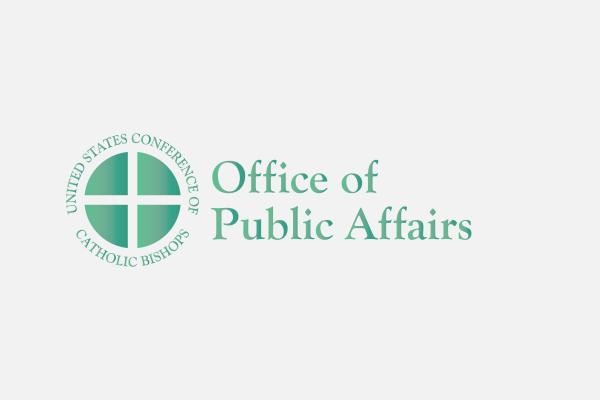USCCB Urges Rescission of HHS Contraceptive Mandate, Criticizes ‘Inexplicably Narrow’ Definition of Religious Freedom
WASHINGTON—The general counsel of the U.S. Conference of Catholic Bishops (USCCB) called on the Department of Health and Human Services (HHS) to rescind its mandate forcing private insurance plans to cover contraception—including abortifacients—and sterilization, calling the mandate “unprecedented i
WASHINGTON—The general counsel of the U.S. Conference of Catholic Bishops (USCCB) called on the Department of Health and Human Services (HHS) to rescind its mandate forcing private insurance plans to cover contraception—including abortifacients—and sterilization, calling the mandate “unprecedented in federal law and more radical than any state contraceptive mandate.” The comments also criticize the narrow “religious employer” exception to the mandate, explaining that it provides “no protection at all for individuals or insurers with a moral or religious objection to contraceptives or sterilization,” instead covering only “a very small subset of religious employers.”<?xml:namespace prefix = o ns = "urn:schemas-microsoft-com:office:office" /?>
In their August 31 comment to HHS, Anthony Picarello, USCCB general counsel, and Michael Moses, associate general counsel, noted that the mandate to cover “all FDA-approved contraceptives” and “emergency contraceptives,” including at least one drug called Ella that can cause abortions, entails “nationwide government coercion of religious people and groups to sell, broker or purchases ‘services’ to which they have a moral or religious objection.” This represents “an unprecedented attack on religious liberty,” they wrote.
As to the exemption, the comments detail how it “is narrower than any conscience clause ever enacted in federal law, and narrower than the vast majority of religious exemptions from state contraceptive mandates,” wrote Picarello and Moses. “By failing to protect insurers, individuals, most employers, or any other stakeholders with a religious objection to such items and procedures, the HHS exemption, like the mandate itself, violates” the U.S. Constitution and various federal statutes.
According to Picarello and Moses, the mandate violates the Weldon amendment and the Patient Protection and Affordable Care Act (PPACA, commonly known as the health care reform law), as well as the Administration’s own stated policy to exclude from the mandate any drug that can cause an abortion. Both the mandate and the narrow exception violate various protections of religious freedom under the First Amendment.
“Until now, no federal law has prevented private insurers from accommodating purchasers and plan sponsors with moral or religious objections to certain services,” they wrote. “Plans were free under federal law to accommodate those objections by allowing purchasers to choose not to buy coverage for gender change surgery, contraceptives, in vitro fertilization, or other procedures that the purchaser or sponsor found religiously or morally problematic. Likewise, federal law did not forbid any insurer, such as a religiously-affiliated insurer, to exclude from its plans any services to which the insurer itself had a moral or religious objection. Indeed, the freedom to exclude morally objectionable services has sometimes been stated affirmatively in federal law.”
Under the mandate, they wrote, this will end. “Individuals with a moral or religious objection to these items and procedures will now be affirmatively barred by the HHS mandate from purchasing a plan that excludes [contraception and sterilization]. Religiously-affiliated insurers with a moral or religious objection likewise will be affirmatively barred from offering a plan that excludes them to the public, even to members of their own religion. Secular organizations (insurers, employers, and other plan sponsors) with a moral or religious objection to coverage of contraceptives or sterilization will be ineligible for the exemption.”
Religious employers that do not meet HHS’s narrow definition will also be subject to the mandate. “HHS has concluded, for example, that a church is not a religious employer if it (a) serves those who are not already members of the church, (b) fails to hire based on religion, or (c) does not restrict its charitable and missionary purposes to the inculcation of religious values. Under such inexplicably narrow criteria—criteria bearing no reasonable relation to any legitimate (let alone compelling) government purpose—even the ministry of Jesus and the early Christian Church would not qualify as ‘religious,’ because they did not confine their ministry to their co-religionists or engage only in a preaching ministry. In effect, the exemption is directly at odds with the parable of the Good Samaritan, in which Jesus teaches concern and assistance for those in need, regardless of faith differences.”
Though the problems with this exemption are serious and need to be addressed, the comments emphasize that the fundamental problem lies in the mandate itself, which must be rescinded: “Only rescission will eliminate all of the serious moral problems the mandate creates; only rescission will correct HHS’s legally flawed interpretation of the term ‘preventive services.’”
The full comment can be found online: www.usccb.org/about/general-counsel/rulemaking/upload/comments-to-hhs-on-preventive-services-2011-08.pdf
---
Keywords: Department of Health and Human Services, HHS, United States Conference of Catholic Bishops, USCCB, General Counsel, preventive services, mandate, interim rule, comment, U.S. bishops, Anthony Picarello, Michael Moses, contraceptives, sterilization, abortion, religious freedom, conscience

